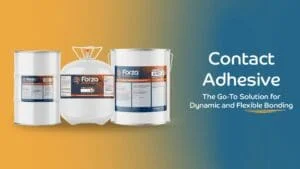MS vs silicone adhesives – how do they compare?
Both are polymer-based structural adhesives, with one using a modified silane polymer as a base, and the other using a synthetic polymer. They are both used for sealing and bonding applications, across many industries.
The benefits to using MS polymer adhesives, are that they are stronger and have a higher green strength than silicone adhesives, as well as a faster cure. They are odorless, flexible, and can be painted in most applications. MS polymers are UV resistant, perform well at low temperatures, and are a lot more durable than silicone adhesives. They are also more expensive.
Silicones, on the other hand, are cheaper but just as flexible as MS polymer adhesives. They have a strong odor, are slower and not so strong as MS polymers, and are not paintable. However, silicones are easy to work with, and will bond to almost anything. They also have a higher temperature resistance than MS polymers, and perform well at low temperatures.
Which adhesive is best for you? Contact us, and let us know your application and the substrates you’re bonding – and we’ll happily provide our recommendations!



